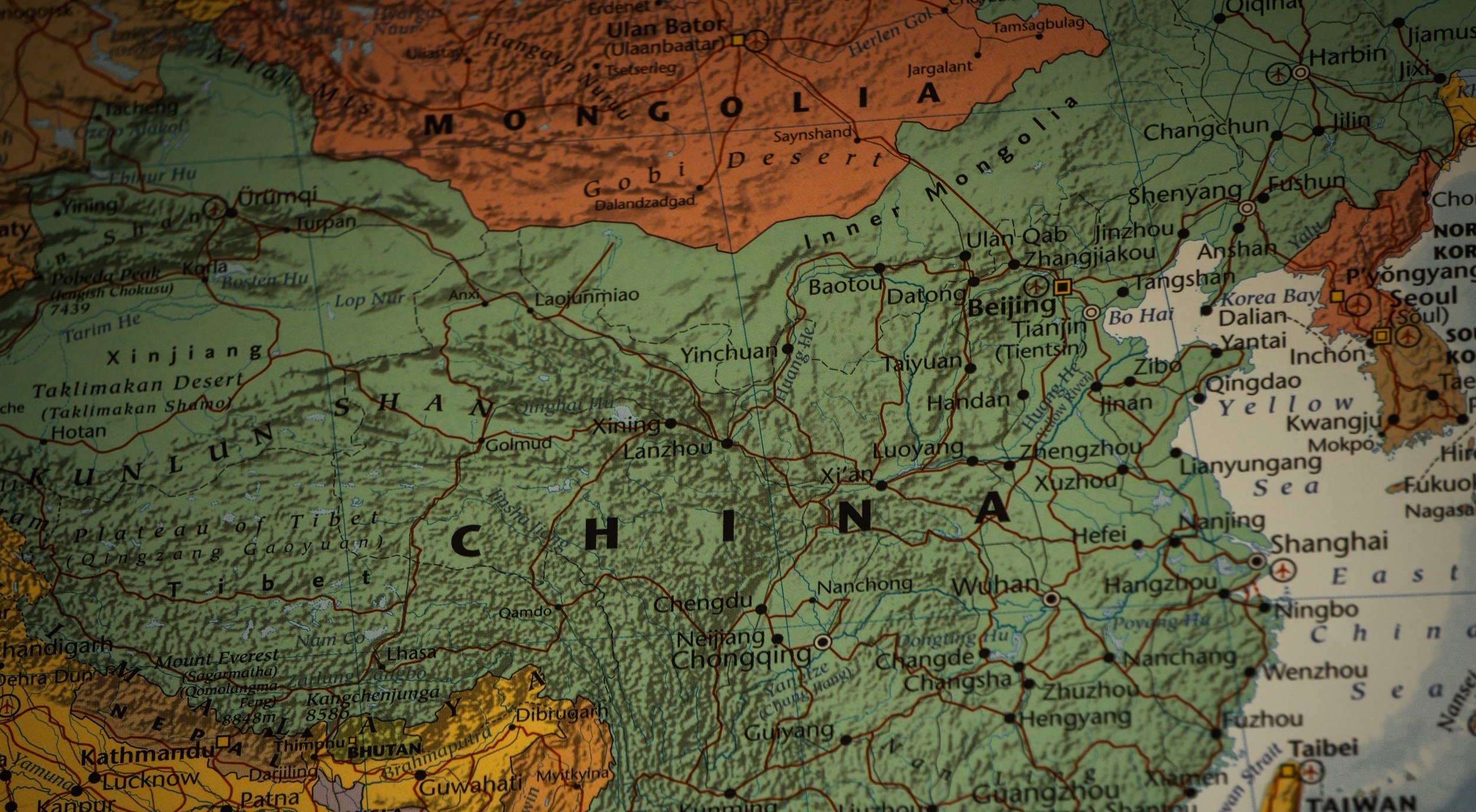All told, by looking at the development of the Three Warfares concept and its implementation in the context of disputes in the South China Sea, it becomes clear that China does not merely conduct political warfare in pursuit of various individual geostrategic objectives. Rather, it is fundamentally integrated within China’s broader maritime strategy, which, in turn, translates into China’s grand strategy of national rejuvenation. This deduction is further underpinned by China’s long strategic legacy, which firmly resembles Kennan’s definition of political warfare. Chinese political warfare should, therefore, not be considered separate from the larger strategic context because China’s conception of national strategy incorporates all levers of comprehensive national power, as defined by Xi Jinping himself, leading to the symbolic characterization of Chinese political warfare as a strategic tautology, as political warfare seems fundamentally inherent within Chinese strategic thinking.
#Reviewing The Avoidable War
All told, Kevin Rudd’s The Avoidable War is very much worth the time and effort. Through a series of missteps in execution, it takes Rudd a while to get the reader onboard with his topic. Once there, however, the information provided is valuable, and Rudd’s perspective from personal experience does give his words an air of authority in these matters. For those starting out on their journey to understand what is arguably the world’s most important contemporary competition, this book is a fine place to begin.
#Reviewing Backfire
In a series of short, engaging, and clearly written chapters, Demarais breaks down why the U.S. found sanctions such an appealing policy instrument; how their widespread use in the 1990s and 2000s triggered changes and upheavals, as countries around the world coped with the issues of challenges of compliance; and, finally, how sanctions implementation has generally backfired, imposing costs on the U.S. and its allies while encouraging targeted states towards policies and strategies designed to insulate their governments and economies from U.S. pressure.
Strategic Ambiguity Out of Balance: Updating an Outdated Taiwan Policy
In the 1970s, China’s Chinese Communist Party (CCP) deferred resolving the Taiwan question—invading Taiwan to defeat the Kuomintang (KMT) and claim that territory—because it prioritized achieving economic development that required access to and integration with international trade and capital markets. Meanwhile, the U.S’ strategic ambiguity posture sought to stabilize the Taiwan Strait with dual deterrence of both Chinese attack and Taiwanese declaration of independence. This policy rested on two premises—that China would remain committed to peaceful and non-coercive merger, if any, and that Taiwan’s independence was not essential to American foreign policy interests—neither of which holds today.
SEA-Merica 2040: Leveraging Climate Change to Win Friends and Influence the South China Sea
China’s excessive maritime claims in the SCS destabilize and undermine the balance of power in Southeast Asia. The best way to achieve a free and open SCS is a peaceful strategy that nests the common needs of the SCS Five within U.S. security interests and capabilities, all without requiring modification of Chinese behavior for success. SEA-Merica 2040 does the job.
Hungry Like the Wolf: Territorial Conquest and Great Power Competition in the New World
Russia and China could succeed in weakening American influence in its far abroad and security in its near abroad through reliance on tried-and-true hybrid war/grey zone tactics. These indirect maneuvers are cheaper and easier to orchestrate under the U.S.’s nose than direct military operations and have the asymmetric effect of maximizing the impact of a minimal investment, stretching the power and reach of weaker powers confronting more powerful rivals.
Better Late than Never
The intertwining of economics and geopolitics means it is imperative that the United States strengthen its economic strategy for the Indo-Pacific to avoid ceding further influence to China. Specifically, the United States. should consider joining the Comprehensive and Progressive Agreement for Trans-Pacific Partnership (CPTPP), the Trans-Pacific Partnership’s (TPP) successor, for the economic and strategic benefits it provides.
#Reviewing The Strategy of Denial
Elbridge Colby, a former Deputy Assistant Secretary of Defense for Strategy and Force Development and a leading official in the development of the 2018 National Defense Strategy, has the curriculum vitae to provide an authoritative reassessment of U.S. defense strategy. Anchored in theory and bolstered by historical references, the book provides valuable nuggets of information, but it stops short of being groundbreaking—particularly for readers who are already well abreast of Chinese affairs and the principles of strategy.
A Gnawing Hunger: Food Policy and Great Power Conflict, A U.S.-China Case Study
While much analysis has focused on how fishing and other related maritime resource disputes play into great power competition and the national security implications for the U.S., comparatively little analysis has focused on the impacts of any disruption of not only the Chinese fishing fleet but China’s international food imports in the event of a Pacific conflict. Although China remains more vulnerable than the U.S. to food disruption in such a scenario, the ripple effects of a Pacific war will force China, regional actors, and even the U.S. to carefully manage national food policies, with drastic consequences should their attempts fail. In a future Pacific conflict, food policy and management by all parties is, to paraphrase Sir Michael Howard, a likely root of either victory or defeat for any unprepared participants.
Old Enemies, New Friends: Repairing Japanese-Korean Relations and Moving to a Networked Approach Towards America’s Alliance
Expectations that Japan and the Republic of Korea could work together to develop their own strategic partnership have been dashed, with the two countries drifting apart over the past few decades and allowing tensions in their bilateral relationship to hamper any cooperation on security issues. This breakdown in Japanese-Korean relations is limiting the ability of the U.S. to fully utilize its regional alliances to defend the status quo in East Asia. It is in the interest of American peace and prosperity to prevent any foreign power from dominating the region, which is home to multiple security partners and critical markets for American goods. Additionally, East Asia sits atop a number of trade routes vital to the broader economy that underpins the broader liberal international order. This article proposes a potential strategy through which Washington can foster relations between its allies and better push back against Beijing’s efforts to become a regional hegemon.
Remembering the Geography in Geopolitics and Indo-Pacific Discourse
All too often, national security policy professionals presume modern technology has obviated the importance of geographic location and physical features. Yet physical geography remains central to national security realities that will only become more severe as competition between great powers of relative parity intensifies.
How the U.S. Can Recapture Escalation Control
Escalation control was once firmly part of the U.S. strategic lexicon. The term fell into disuse because it was assumed U.S. unipolarity made it dominant in any post-Cold War political-military competition. But such assumptions are clearly incorrect today. Indeed, U.S. responses to rival nations’ efforts to dominate escalation narratives have tended to telegraph timidity rather than strength.
Offshore Balancing with Chinese Characteristics
China cannot be an effective offshore balancer if it remains on the permanent defensive in its own neighborhood, hemmed in by American bases, naval forces, allies and security partners. To be in a position to balance the United States globally, it must not only break through the first island chain but achieve outright regional supremacy in the Western Pacific.
Breaking Up is Hard to Do: Applying an Overlooked Analogy to U.S.-China Competition
Historical analogies are vital tools to navigate the present and shape the future, particularly given humanity's general lack of clairvoyance. However, such analogies must be carefully chosen; overreliance on a particular historical episode can instill assumptions in the minds of strategists or students of strategy that too often go unexamined. Currently, the Cold War reigns as the dominant analogy in framing U.S.-China relations in the 21st century.
Assessing Chinese Military Capabilities: Response Actions for American Strategy
American national security depends on a comprehensive understanding of China’s recent defense reforms and weaknesses so that decision-makers remain aware of how willing Xi may be to go to war and how U.S. strategy in Asia should be adjusted to mitigate this potential. The primary concern of the new administration’s National Security Strategy in responding to China’s military modernization should be an equivalent focus on military capabilities, through a reinforced defense budget and collaboration with allies, and secondarily, greater efforts to increase high-level talks with Chinese officials on areas of potential collaboration.
A Game of Great Powers: The Realities of the Evolving Competition between the United States and China
In great power competition, alliances matter as much as anything else. And, as previous great power competitions demonstrate, alliance shifts can lead to instability and even open conflict between competitors. For the United States to maintain the upper hand in a worldwide strategic competition with China, alliances play a central role.
Warning: Scrutinize Any Underlying Assumptions for China in the New National Security Strategy
Looking back to the Cold War, most analyses, including American intelligence estimates, underappreciated the systemic weakness of the Soviet Union before the precipitous fall of the Berlin Wall in 1989. Currently, many over-appreciate systemic weaknesses in China linked to demographic decline, debt, and large migrant populations, among other issues, as signs of distress. Today, strategic analyses miss a possible leadership transition in China or gloss over the domestic fissures in American society. Therefore, it is critically important, now more than ever, to question conventional strategic assumptions and logic. Otherwise, the U.S. will be caught by surprise and face utter disappointment with its China policy once again in the not-too-distant future.
The Façade of Chinese Foreign Policy Coherence
The common perception that China’s centralized state leadership is empowered to pursue Chinese dominance over international affairs is tempting, but illusory. Its actions abroad are better understood as a manifestation of the Chinese leadership’s responses to various, and occasionally conflicting, domestic political, economic, and social pressures.
Insights from the Past: Thucydides on Great Power Competition
Thucydides offers many enduring insights for scholars and policymakers. New tensions emerge as great powers search for new allies and try to hold on to old ones. Once begun in earnest, great power competitions are likely to endure for decades, because of the resources great powers possess. Those resources make it highly likely conflict comes with an often terrible cost for the victor and for the vanquished.
Revisiting Thucydides: Ruminations on the Future of U.S. Indo-Pacific Strategy in an Age of Great Power Competition
While war between the United States and China is a possibility, a larger and more refined lesson could be gleaned from Thucydides’ ancient text. In an era of great power competition, The Peloponnesian War provides one of the first nearly complete histories of a conflict that included complex alliances, ideologically opposing views, civil discord, diplomacy, total war, and human struggle. It provides examples of how the choices made by Athenian and Spartan leaders mattered in determining whether they avoided war or led their countries into conflict. Most importantly, The Peloponnesian War offers strategists and policymakers invaluable insights into the nature and character of competition between two great powers and makes clear the importance of strategic options that avoid ill-conceived conflict.





















